- Home
- William Shakespeare
Henry V Page 20
Henry V Read online
Page 20
Boyd: For the actor (Geoffrey Streatfield in our case) and those around him it is crucial to carry the detailed memory of Hal's dissolution and rebellion into his newly disciplined court as Henry V. It is then their job to pass their sense of surprise, danger, and misgiving which surrounds the new Henry across to the audience.
Shakespeare more or less assumes a pre-existing knowledge and affection on the part of the audience for the world and characters of Eastcheap, and without that the early Pistol, Quickly, and Bardolph scenes could be difficult. We flirted with the option of pulling David Warner's Falstaff out of the gloom the night before Agincourt, but found that by then the scene had no room for him. And in any case, Nick Asbury's Pistol represented Eastcheap perfectly well.
Who gets the best of the argument in the "little touch of Harry in the night" scene when the disguised king debates with the common soldiers?
Hall: I think Henry wins the philosophical and the moral side of the argument but the soldiers win the human side of the argument, which is, "Well you come and put yourself in our shoes." I don't think it's resolved in the end. What's interesting is that the idea would have been much more alien to an Elizabethan audience than it is to us, to whom in fact it is not alien at all. Whose responsibility is it? Do you have personal responsibility for the women and children you murder in the town that you've just laid siege to? Do you have personal responsibility in your jet when you press a button and drop a bomb and kill 700 people? Or is it the responsibility of the person who sends you there? And what happens on Judgment Day? What does God think? I think Harry articulates the argument fantastically well, says "We've got to take responsibility for our actions," but at the same time they wouldn't be there if it wasn't for him. I think that would have held a strong currency for common people watching it. If you put that scene in front of a bunch of soldiers nowadays who've done a tour of duty in Iraq or Afghanistan or wherever, they'd probably have a very different opinion to the academic who comes out in favor of that speech. So to a degree it depends who's watching it.
Hytner: In 2003, the soldiers. It wasn't even close.
The then editor of the Daily Telegraph came to see our production, shortly after he'd been to Iraq and spent time talking to members of the army. He was a supporter of the war, but told me that he'd been particularly moved by the dialogue of the common soldiers as it reflected exactly what he'd heard in Iraq. The king's over-long response to Michael Williams feels like so much special pleading; but to be fair, it's a long time since anyone believed that war is God's beadle.
The business with Williams' glove seems to me to be very uncomfortable. Here's a king who has just won one of the most famous victories in British history, and in its aftermath his chief concern appears to be a mean-minded practical joke at the expense of an ordinary soldier who has unwittingly offended him. He sets up Fluellen to beat Williams, at considerable peril to them both: no sane general would maneuver two pumped-up squaddies, fresh from battle, into a fight with each other. In our production, when Fluellen went for Williams, the result was a beer-fueled brawl that soon involved the entire division. It was maybe the most convincing bout of violence in the show, and it felt right that the undignified consequence of Henry's petty vendetta threatened to undermine the numbering of the dead. It didn't, of course: the naming of the dead never fails to bring a lump to the throat whatever the ceremony. But it must have been part of Shakespeare's plan, in a play where the most of the dead English are (in context, accurately) dismissed as "None else of name," to bring so vividly and sympathetically to life some of the nameless. And, indeed, to name them with such touching precision.
Boyd: Williams has the easier task and by far the most vivid language, but Hal's doctrine of personal responsibility is at least robust enough for the scene not to be deemed treasonous. Williams wins, but that could be denied by the author.
If the text is to be trusted, Henry orders the killing of the French prisoners before hearing of the French attack on the boys and the baggage-carriers, so Fluellen is wrong in giving that as a justification. Is that a problem?
Branagh: The pace of the battle scenes was very important, so I wanted to move rapidly from Henry's anger to Montjoy's entrance. That meant that some of the business about the reasons for killing the French prisoners was cut. To balance that, we did earlier see Henry witnessing the execution of Bardolph face-to-face. I decided on including some significant scenes that Olivier's film, for obvious reasons, had left out. The violence and extremism of Henry's behavior and its effect on a volatile war cabinet were elements that the Olivier version was not likely to spotlight.
Hall: I did it as I remember, that they killed the boys and the baggage so he killed all the prisoners. It's vicious, it's very brutal, and I showed that as well. There's a danger that it makes Harry seem justified in his murder, but on the other hand it's war, and we like to pretend there are rules in war, but actually there aren't. The Geneva Convention is great for us to have, it's like a comfort blanket, but the bottom line is it doesn't make a difference when you unleash that anarchy and then use the army to try and control it.
I did two things. Firstly, in the scene with Pistol and the French prisoner; Pistol beat the French prisoner to within an inch of his life. I wanted to show very clearly that the English were very violent against the French in the middle of the battle. And when Henry gave the order to kill the prisoners, we lined them up against the back wall of the RST and machine-gunned them all to death, very physically, very loudly. I didn't want it to feel like Henry was doing this with kid gloves. I wanted it to feel like he was brutal, decisive, and violent. If you talk to people who have actually been in the theater of operations, there is no time to mess around and ask these questions and worry about these things. You've got a responsibility to your men and you've got to win and, essentially, you've got to do it in any way that you can. That's the bottom line, and I think what Henry does is kill the prisoners in order to free up his men to fight. You can't keep soldiers busy looking after prisoners when they're supposed to be on the battlefield. I think with the changing around of the text there is a danger of softening what Henry does, and I know that historically he was particularly brutal on French campaigns. What I tried to do was embrace that in all its awfulness.
Hytner: It's only a problem if your production wants to whitewash Henry, as both Olivier and Branagh did in reordering events to make the slaughter of the French prisoners the consequence of the attack on the boys. There's no need to do this: the point is surely that war is an appalling business and that war crimes happen. Henry V is both hero and war criminal, and he isn't the first to be both.
2003 seemed to me to present a different issue, extra-textual but real nevertheless. I knew that the audience would be seeking out contemporary parallels, and I was sensitive less to the slurring of the reputation of Henry V, who can look after himself, than to the possibility of damning the soldiers who carry out his orders, and by association the soldiers who were carrying out orders on our behalf in Iraq. In our production when Henry gave the order "Then every soldier kill his prisoners," the soldiers refused to follow it. They couldn't stomach it. So it was left to Fluellen to gun the prisoners down on his own.
Boyd: No. It's a joy. Shakespeare's understanding of the dynamic, aesthetics, and morality of propaganda is unrivaled. Nor does he blench at the evils of war. Prisoners can rise up against you and keeping prisoners secure takes men away from your battle line, and Henry is in any case flawed. Fluellen's loyalty need not be seen as negative. The play has let us see the truth.
So then, King Henry V: ideal monarch or ruthless hypocrite? How much do you think we are supposed to admire him in the play?
Branagh: It is a more complex play than is traditionally acknowledged and Adrian's production strongly resisted the concept of a two-dimensional Boy's Own adventure. In my own performance, I tried to realize the qualities of introspection, fear, doubt, and anger which I believed the text indicated: an especially young Henry with
more than a little of the Hamlet in him. It was conveying these elements of the king's personality that gave me the initial idea for a new screen version--the idea of abandoning large-theater projection and allowing close-ups and low-level dialogue to draw the audience deep into the human side of this distant medieval world.
Henry is a man with a close understanding of what war involves, and an intense, visionary appreciation of its consequences. He is a killer, a brilliant politician, but much of this is in embryo and is subject to change during the course of the play. Above all, he is a complicated, doubting, dangerous young professional--neither straightforwardly good nor consciously evil. Adrian and I both agreed that we should not try to explain this man but rather explore all these paradoxes and contradictions, with an awareness of his historical and social context. We wanted to be faithful to the complex inner debate that Shakespeare conducts on the subject of war, and as we discussed the play it seemed less like a historical pageant and more like a highly complicated and ambiguous discourse on the nature of leadership.
Hall: I think the play releases the spirit of nationalism in us all if it works well, which is both exciting and bloody dangerous. Nationalism is a good thing in many respects; we should be proud to be who we are, proud of our culture, and proud of our roots and our identity. God knows England is a tribal enough place and has enough of that. But at the same time, that energy can release a violence in people that tips into "Well I'm not going to let anyone else be different to me, that's a bad thing." And it becomes very violent and nasty. I think the play deals in both those things. So at different times you feel proud to be British and also disgusted at the same moment. I think it's a good mix of those themes, which is an accurate reflection of the issues that Shakespeare is writing about.
Hytner: As always in Shakespeare, it's a bit of both, isn't it? (And your question begs the question: "Who said that ideal monarchs can't also be ruthless hypocrites?")
I think Shakespeare set out to write a big hit Henry V play for his company. Agincourt was box-office gold--his was the fourth play on the subject to open in London in ten years; and he certainly borrowed wholesale from the only one of those to survive. The company and the audience presumably wanted hagiography, and I suppose you can read Shakespeare's play as uncomplicated hero-worship if you want to, and if you're prepared to ignore everything that tells you not to. Everything about Henry is questioned in the play. Was he justified in going to war? Was he politically wise to go to war? How good a strategist was he? How much did he care about his subjects? Were his show trials and show executions right, or worthwhile? The point is always the question itself; the answer is rarely unambiguous.
Henry does not have the saving grace of self-consciousness. His only soliloquy is marred by self-pity. He is no Hamlet. But his dazzling eloquence has such power that it seems almost to make irrelevant the question of his sincerity. Gentlemen in England now a-bed, who nowadays include nearly all of us, can still be galvanized by Olivier or Adrian Lester; or by those with graver responsibilities than theirs--like Colonel Collins or Winston Churchill--who still reach back for inspiration to Henry V.
Boyd: Henry is ruthless and expedient to the point where his actions are manipulative, and morally dubious. But he is vulnerable too, and utterly honest with us the audience. He has the appeal of the underdog at Agincourt, and shows real personal courage in overcoming his own grave misgivings to inspire his tattered army to victory. And then he's given one hell of a charmer of a last scene.
Gower, Fluellen, Jamy, and MacMorris all have national characteristics that sometimes make one think of those jokes that begin, an Englishman, a Welshman, a Scotsman, and an Irishman ... Then we have the ridiculing of the affected French. How did you deal with what might now be perceived as the play's stereotyping and xenophobia?
Branagh: In the theater, the last RSC production played for over three hours, even with significant cuts, and there was no choice writing the screenplay but to be even more savage. In any case the cuts dictated themselves. The more tortuous aspects of the Fluellen/Pistol antagonism, culminating in the resoundingly unfunny leek scene, were the first to go. The double-edged exchanges between Henry and Burgundy in Act 5 also, for my purposes, failed to advance the plot, and added little to the aspects of the play that we wanted to explore.
Hall: With Fluellen, MacMorris, Jamy, and Gower, we just played them as very passionate, proud Welshmen, Irishmen, Scotsmen, and Englishmen, and audiences love that and adore that. As long as your characters are ferociously proud and strong in their arguments and perspectives and you're not sending them up, and if you get a good actor, then I think you're fine. What you've got is a wonderful portrayal of the United Kingdom attempting to be united. It's still a complete anomaly that we have an English rugby team and an English football team, yet we also have the British Lions--explain that to me. You try to explain to a child the idea of geography and country and nation and it's very hard, because they say "Well, is Wales another country?" And you say, "Well yes, but no, we're all united." So we still argue about it and delight in it today, and when you put that on a stage the audience recognize it instantly and they adore it. I think it's passionate, funny, and very contemporary. I think the ridiculing of the French is just a national pastime on our front, and likewise from the French to the English, and Shakespeare's tapping into that. I don't think much has changed. Those French jokes still hold a lot of currency in an auditorium, but essentially you're showing a group of people at war taking the piss out of the enemy, and then you're showing the enemy almost living up to that press and more, particularly with all the chat about the dauphin talking about his horse. But in the end Shakespeare counters it with a tremendously moving scene where Henry reads out the list of the dead, which is extraordinary. He gives them a roll call, honors them all, and I think there's a huge sense of shock at the size of the French loss. I did that with great pathos and seriousness, and as Henry was reading out the dead the soldiers slowly became aware of how many were gone, and I asked the actors to start to react in a deeper way at the loss, how extraordinary that was, and start to let it sink in and affect them. Every single name Henry reads out was from a great family, and they're all gone. So I think there is a payoff in the end; the soldiers and Henry really feel that God has supported them and the French have had a great loss, and that's something to be respected.
Hytner: The jokes aren't a problem if they are funny. Stereotypes aren't a problem in themselves: they become a problem if they are untrue, uncharitable, and unfunny. It may be that Shakespeare would have been done for apostasy by the modern academy, but theater audiences tend to be less censorious.
In any event, with his English, Welsh, Scottish, and Irish captains, I think Shakespeare was saying something about the English army and the British nation--then, as now, multiracial. (And then, as now, particularly dependent on Scottish, Welsh, and Irish soldiers. The best play so far about the Iraq war on the ground is Gregory Burke's Black Watch: a Scottish regiment betrayed by Westminster.)
Some of the French are affected, some aren't. The dauphin is pretty intolerable, and ineffectual; but Burgundy's speech in Act 5 is an overwhelming lament for a war-torn land, and a dignified rebuke for the warmongering English king. Reading recently Anthony Beevor's account of the devastation of Normandy after the D-Day landings, I was constantly put in mind of Shakespeare's evocation of the consequences of a previous, and more hostile, English invasion.
Boyd: Gower was played by Paul Hamilton, also Talbot's Captain of Orleans in Henry VI Part I, who later as Alexander Iden killed Jack Cade in Henry VI Part II, and fought alongside Richmond to destroy Richard III at Bosworth. A true, quiet, English hero.
Fluellen in Jonathan Slinger's hands was no fool, just single-minded, and so funny and palpable that you forgave national stereotyping. His "Welsh correction" of Pistol was so vicious that you almost felt sorry for Pistol.
Jamy the Scotsman was a tricky task that several cast members tried their hand at, includin
g one Scot. In the end we cut him down to one line, slapped a bonnet on his head and put him in Geoff Freshwater's capable hands.
MacMorris was played by a passionate Aussie, Rob Carroll, who managed to bring danger and violence to the National question while catching the laughs as well.
Shakespeare has disappointingly little light to shed on the issue of England in a new "Britain" beyond a rather generalized rerun of his Henry VI themes of disunity at home reappearing on foreign battlefields.
Throughout his entire History cycle, the French are there to serve Shakespeare's moral, cosmic, and mostly comic purpose. His grossly unfair treatment of them united the crowd (in a way that the Spanish could not have), and mollified the censors. Like Satan, and the Vice before the Hellmouth of the Corpus Christi Mystery Plays, they get many of the best lines and most definitely the best costumes, and the subversion of the unquestionable xenophobia lies in the theatrical fact that we love them for being so venal and vivid.
And the wooing of the French princess: charming coda or more political manipulation?
Hall: I think it is definitely political manipulation, although of course Shakespeare makes Katherine rather beautiful. He writes a scene which starts off as a scene the audience would all recognize, which is a contract, because people then largely didn't get married for love, they got married as part of a deal. It starts as a political deal and ends up as something rather beautiful, and I wanted that one kiss between Henry and Kate to symbolize the beginning of the repairing of the gulf between the two countries. So what began as something slightly cynical and dubious ended up as the beginning of a detente. Which of course doesn't come to pass: it gets tripped up and soon we're seeing Henry's coffin coming onstage in Henry VI Part I.

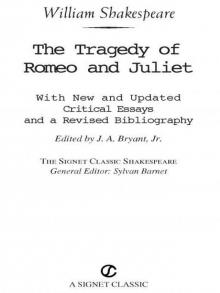 Romeo and Juliet
Romeo and Juliet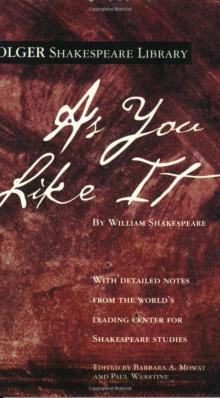 As You Like It (Folger Shakespeare Library)
As You Like It (Folger Shakespeare Library)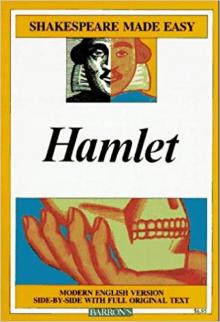 Hamlet
Hamlet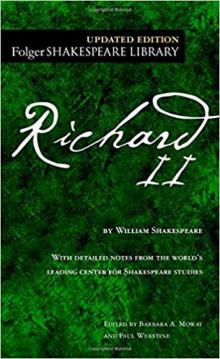 Richard II (Folger Shakespeare Library)
Richard II (Folger Shakespeare Library) Macbeth
Macbeth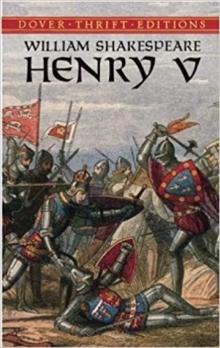 Henry V
Henry V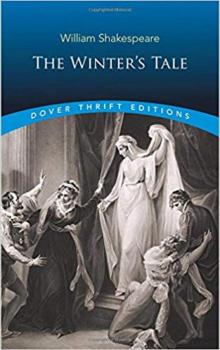 The Winter's Tale
The Winter's Tale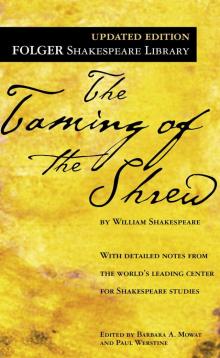 The Taming of the Shrew
The Taming of the Shrew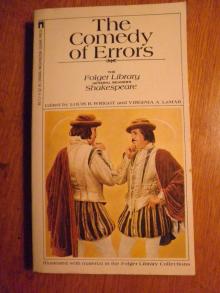 The Comedy of Errors
The Comedy of Errors King Lear (Folger Shakespeare Library)
King Lear (Folger Shakespeare Library)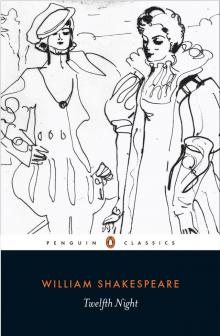 Twelfth Night
Twelfth Night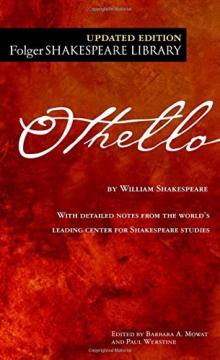 Othello
Othello The Two Gentlemen of Verona
The Two Gentlemen of Verona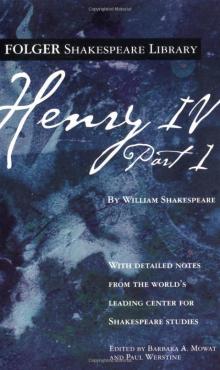 Henry IV, Part 1 (Folger Shakespeare Library)
Henry IV, Part 1 (Folger Shakespeare Library)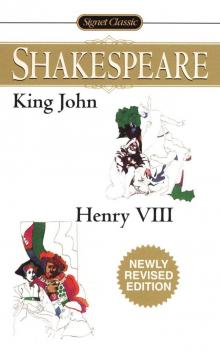 King John/Henry VIII (Signet Classics)
King John/Henry VIII (Signet Classics)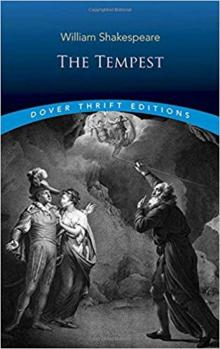 The Tempest
The Tempest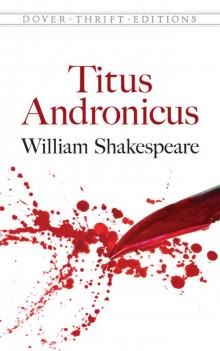 Titus Andronicus (Dover Publications)
Titus Andronicus (Dover Publications)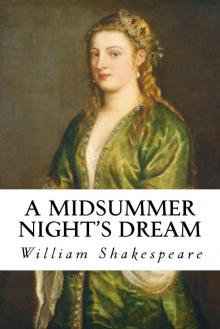 A Midsummer Night's Dream
A Midsummer Night's Dream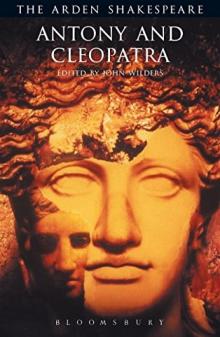 Antony and Cleopatra (Arden Shakespeare: Third Series)
Antony and Cleopatra (Arden Shakespeare: Third Series)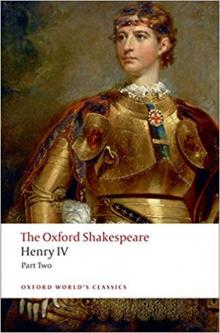 The Oxford Shakespeare: Henry IV, Part 2 (Oxford World's Classics)
The Oxford Shakespeare: Henry IV, Part 2 (Oxford World's Classics)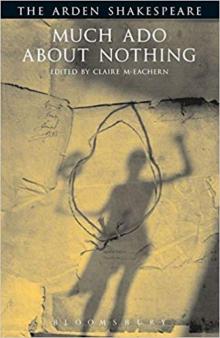 Much Ado About Nothing (Arden Shakespeare: Third Series)
Much Ado About Nothing (Arden Shakespeare: Third Series)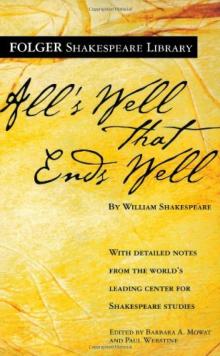 All's Well That Ends Well
All's Well That Ends Well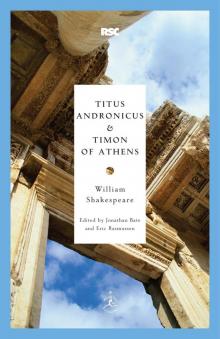 Titus Andronicus & Timon of Athens
Titus Andronicus & Timon of Athens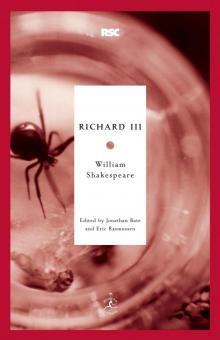 Richard III (Modern Library Classics)
Richard III (Modern Library Classics)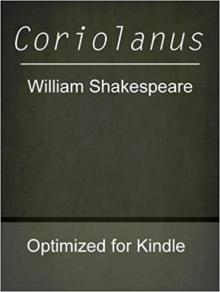 Coriolanus
Coriolanus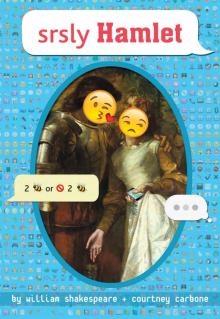 srsly Hamlet (OMG Shakespeare)
srsly Hamlet (OMG Shakespeare)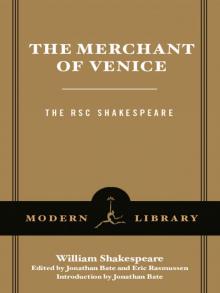 The Merchant of Venice
The Merchant of Venice Richard III
Richard III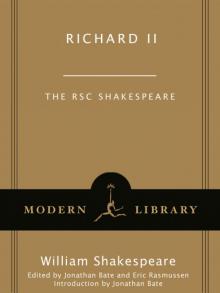 Richard II
Richard II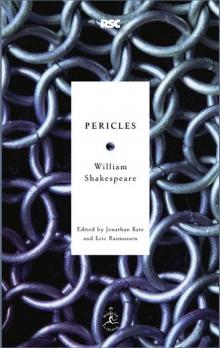 Pericles
Pericles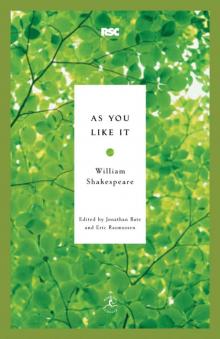 As You Like It
As You Like It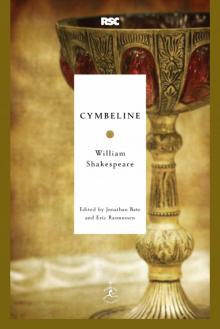 Cymbeline
Cymbeline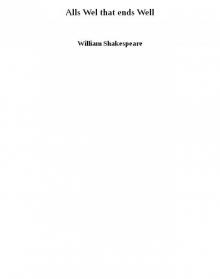 Alls Wel that ends Well
Alls Wel that ends Well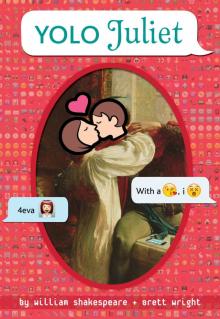 YOLO Juliet
YOLO Juliet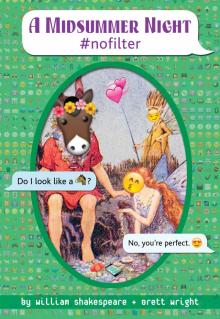 A Midsummer Night #nofilter
A Midsummer Night #nofilter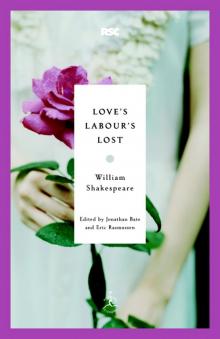 Love's Labour's Lost
Love's Labour's Lost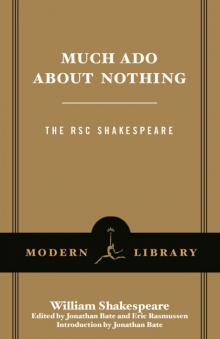 Much Ado About Nothing
Much Ado About Nothing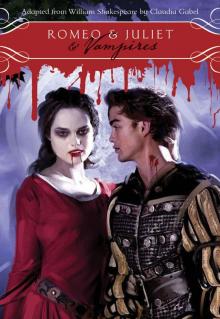 Romeo & Juliet & Vampires
Romeo & Juliet & Vampires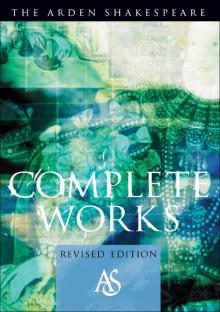 The Arden Shakespeare Complete Works
The Arden Shakespeare Complete Works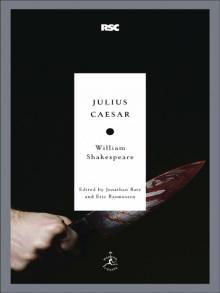 Julius Caesar
Julius Caesar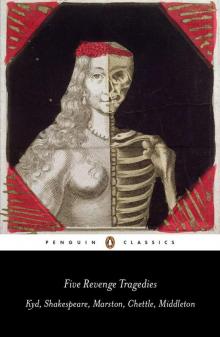 Five Revenge Tragedies: The Spanish Tragedy, Hamlet, Antonio's Revenge, The Tragedy of Hoffman, The Revenger's Tragedy (Penguin Classics)
Five Revenge Tragedies: The Spanish Tragedy, Hamlet, Antonio's Revenge, The Tragedy of Hoffman, The Revenger's Tragedy (Penguin Classics)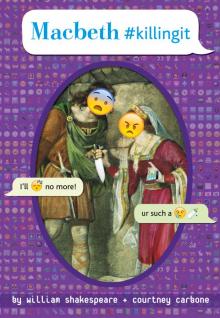 Macbeth #killingit
Macbeth #killingit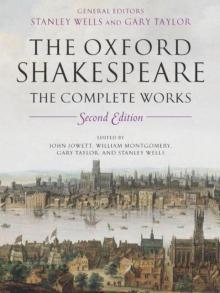 The Oxford Shakespeare: The Complete Works
The Oxford Shakespeare: The Complete Works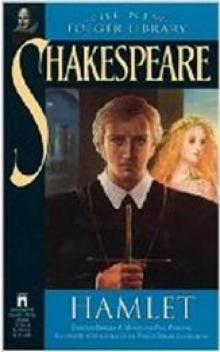 Hamlet, Prince of Denmark (Collins edition)
Hamlet, Prince of Denmark (Collins edition)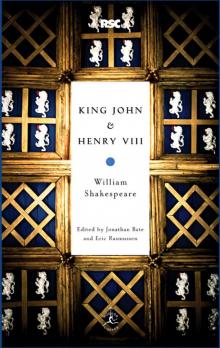 King John & Henry VIII
King John & Henry VIII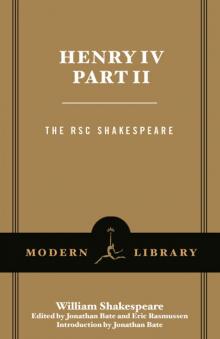 Henry IV, Part 2
Henry IV, Part 2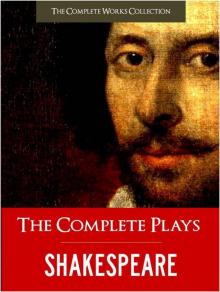 Complete Plays, The
Complete Plays, The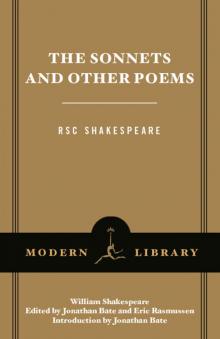 The Sonnets and Other Poems
The Sonnets and Other Poems Antony and Cleopatra
Antony and Cleopatra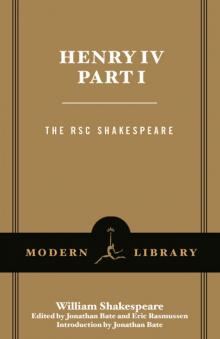 Henry IV, Part 1
Henry IV, Part 1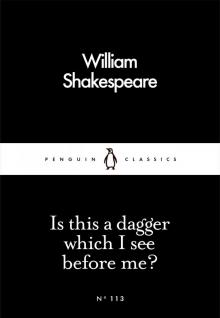 Is This a Dagger Which I See Before Me?
Is This a Dagger Which I See Before Me?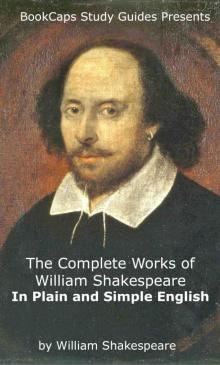 The Complete Works of William Shakespeare In Plain and Simple English (Translated)
The Complete Works of William Shakespeare In Plain and Simple English (Translated) The Sonnets
The Sonnets